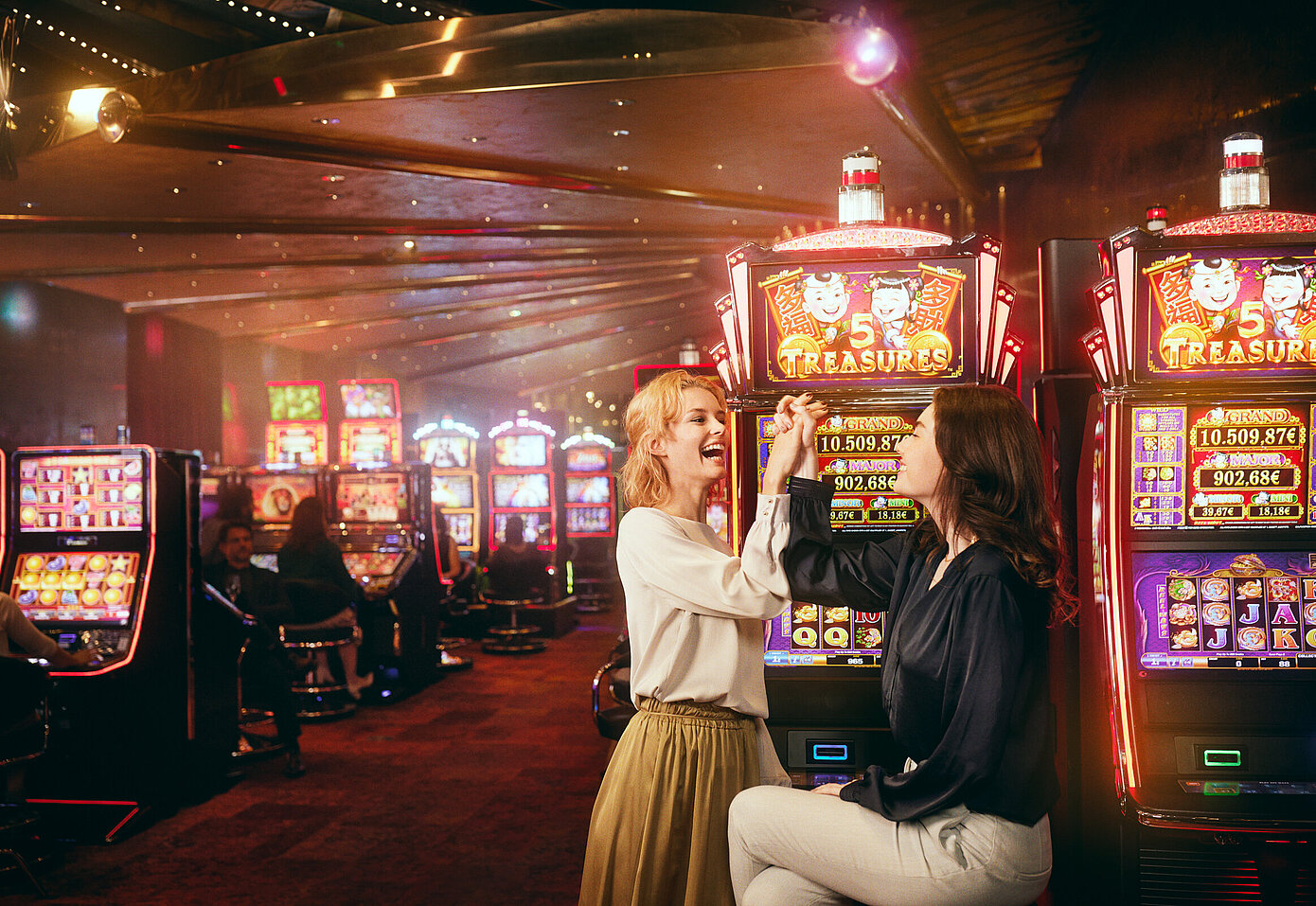Casino entertainment have long been a staple in human culture, providing not just entertainment but a intriguing reflection of our aspirations, dreams, and concerns. From the spinning reels of a slot machine to the skill-based strategies of poker, these games encapsulate a range of human feelings and experiences. At their core, casino games are not just a chance to earn cash; they are a reflection of life itself, where danger and gain converge and fortunes can change in an eye blink. Jun88
As players assemble around tables or sit in front of brightly lit machines, they participate in a ceremony that transcends mere playing. These games mirror our natural desires for connection, excitement, and the quest for chance. They also disclose deeper truths about human psychology, such as our relationship with fate and the adrenaline of the unknown. In exploring casino games, we uncover not only the mechanics of play but also the intricate pattern of the human experience, showcasing our intertwining narratives of goal and reality.
The Psychology of Gambling
Wagering is deeply rooted in human psychology, appealing to various feelings and wants. The excitement of taking risks is a fundamental aspect that draws players in, be it it’s thrill of spinning a roulette or the anticipation of drawing a winning card in a poker game. This adrenaline is often compared to other forms of thrill, as the unpredictability of outcomes elicits a unique psychological response. Players often find themselves captivated by the possibility of winning big, leading to an almost magnetic draw toward gambling games.
Additionally, an essential component of the psychology behind gambling is the concept of optimism and ambition. Players often nourish dreams of financial freedom and the luxurious lifestyle that can accompany winning. This optimism fuels their continued participation in gambling, as it provides a sense of purpose and the conviction that a life-changing win could be just one wager away. The story of beating the odds and finding success resonates with many, reinforcing their commitment to play and engage with these games.
Finally, social aspects play a crucial role in gambling psychology. Gambling venues are designed to foster social interaction, where gamblers gather to share the experience of wins and losses. This communal aspect not only amplifies enjoyment but also affects behavior, as individuals often mimic the actions of others in their vicinity. The collective approval found in mutual thrill can enhance the emotional experience, making casino games a reflection of not just personal desires but also collective engagement within the gambling community.
### Risk and Reward: A Double-Edged Sword
Casino games embody the fragile balance between danger and reward that resonates profoundly with the human experience. The excitement of placing a bet is often accompanied by a rush of adrenaline, as players are confronted with the chance of a huge payout, yet fully aware of the possibility to lose. This twofold experience reflects a essential aspect of life: the choices we make often come with intrinsic risks, and the quest for benefit can push us to make risky moves we might not normally consider. In this way, gambling activities reflect real-world choices, enticing gamblers to gamble not just their money, but also their dreams.
The allure of grand jackpots and winnings fuels a feeling of positivity, encouraging gamblers to dream of a brighter future that could arise from a fortunate turn of the roulette or flip of a card. This optimism can drive individuals to engage in riskier behaviors, pushing them to take greater risks in search of financial gain. However, just as in life, the outcomes of these risks can lead to both triumph and failure. The narratives of both jackpot winners and those who have lost everything at the casino demonstrate the random nature of chance and its impactful repercussions on our existence.

Ultimately, the interaction of engaging with casino games serves as a strong reminder of the nature of humanity. Every session played is imbued with the tension of risk, as players weigh the gains against the dangers. This dynamic not only highlights the excitement that comes with gambling but also exposes the weaknesses that come with the longing for more. As we journey through the challenges of decision-making and consequence in both the gambling world and in life, we find that the pursuit of risk and reward shapes our sense of self and journeys in deep ways.
Community and Isolation in Gambling Culture
Casino culture is a distinct blend of social interaction and individual pursuit, reflecting the tensions of individual experience. Players often come together around games, experiencing in the excitement of the action, celebrating wins, and commiserating over losses. This social aspect is crucial, as it establishes a sense of community and camaraderie among diverse groups of people. Regular attendees to casinos may build friendships and establish routines, turning the gambling venue into a second home where they experience linked to a greater community of gamblers.
However, the allure of casino games can also lead to loneliness. As individuals become engrossed in the thrill of playing, they may isolate from personal connections or fail to interact with the environment outside the gaming space. For some, the pursuit of a jackpot can overshadow genuine relationships, leading to isolation. The situation of being surrounded others yet feeling solitary is not rare, as the attention shifts from shared enjoyment to the private stakes of each individual’s journey.
This interaction of community and solitude creates a vivid mosaic that defines gaming culture. It showcases the complexity of social interactions, where happiness and despair coexist. Casinos serve as both a sanctuary for social engagement and a platform for individual challenges, illustrating how intimately entwined our desire for connection and the individual quest for wealth can be. In navigating this landscape, gamblers confront their own stories—seeking both the thrill of the game and the fellowship of other gamblers, eventually reflecting the wider spectrum of human experience.